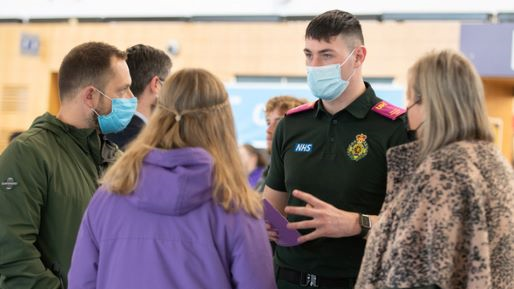Cameron - Things you should know

Things you need to know before studying Paramedic Science at Herts
Anyone applying to this course, as with most healthcare professional courses, is very much aware of the career they are looking to start, which is a blessing of sorts. These are just a few things I think people should know whilst consider a career as a health care professional.
Since its recognition as a profession in the 1990s, to the “Paramedic Evidence Based Education Project” in 2013, it has become more obvious that paramedics are moving rapidly into being an evidence-based healthcare profession. This means that our practice is constantly changing as evidence finds more effective practices or removes less-effective practices. Gone are the days of “scoop and shoot,” and here are the days of treating patients, leaving the ambulance services and being a key part of emergency medicine. When I started this degree, I didn’t understand the true nature of the role as I do now. It's far more complicated than I first thought, and it is more obvious than ever that a degree is what is needed to understand the profession as it changes.
Another thing that needs considering is the range of careers available. In times gone by, paramedics just worked on ambulances. Now, you can find them in all corners of healthcare, ranging from GP surgeries to A+E, to oil rigs and cruise ships. #notallparamedicsweargreen was started to highlight this, and I highly encourage all interested in this course to look it up.
The course itself is a strange beast unto itself. The two main theoretical components are the science elements and patient assessment and management. Whilst the other aspects of the course can feel a little bit less relevant, you realise their usefulness in practice very quickly. Whilst elements of law may feel distant, when you are faced with complex medico-legal situations, you will thank the lucky stars you paid attention in that lecture.
Another aspect of the course to consider is your time learning. Unlike in some courses, everything you learn you will have to put into practice soon, so it’s well worth your time learning both the general paramedic theory, as well as trust specific protocols for placement. Knowing these makes you far more useful to the crew your put with on placement.
A final misconception I personally had before I personally had was that the medical knowledge wouldn’t be as advanced as it is. What we cover is quite advanced medical concepts, more so than I had expected, so be prepared for the science to get intense, very quickly.
Another beast is placement. Placement is the best part of the year by all measures. Its where you practice all the elements you have learned in theory and have the single best look into your future career. That doesn’t mean it’s not a challenging time though. Firstly, the logistics of getting to stations 20 miles away at 06:00 in the morning is hard on its own, especially if you don’t have your own transportation. Secondly, you are fully exposed to whatever the crew goes to. Car crashes, stabbings, mental health patients, you see it all. Thankfully, serious jobs aren’t an everyday occurrence for most, but they do happen. There’s nothing stopping you going to deceased patients in your first week. Thankfully, there is so much support, both from the trust and the university, as well as your mentors. Finally, placement is exhausting after a while. 12-hour shifts at odd times, night shifts, a constant inflow of patients. There’s no getting around the fact you are under a lot of stress over the course of the month.
There is a lot of stuff about the course and placement that I wish I could tell you about, but then this wouldn’t be a blog, rather a book. At the end of the day, paramedic science and the career it leads you to is at times tough but highly rewarding.